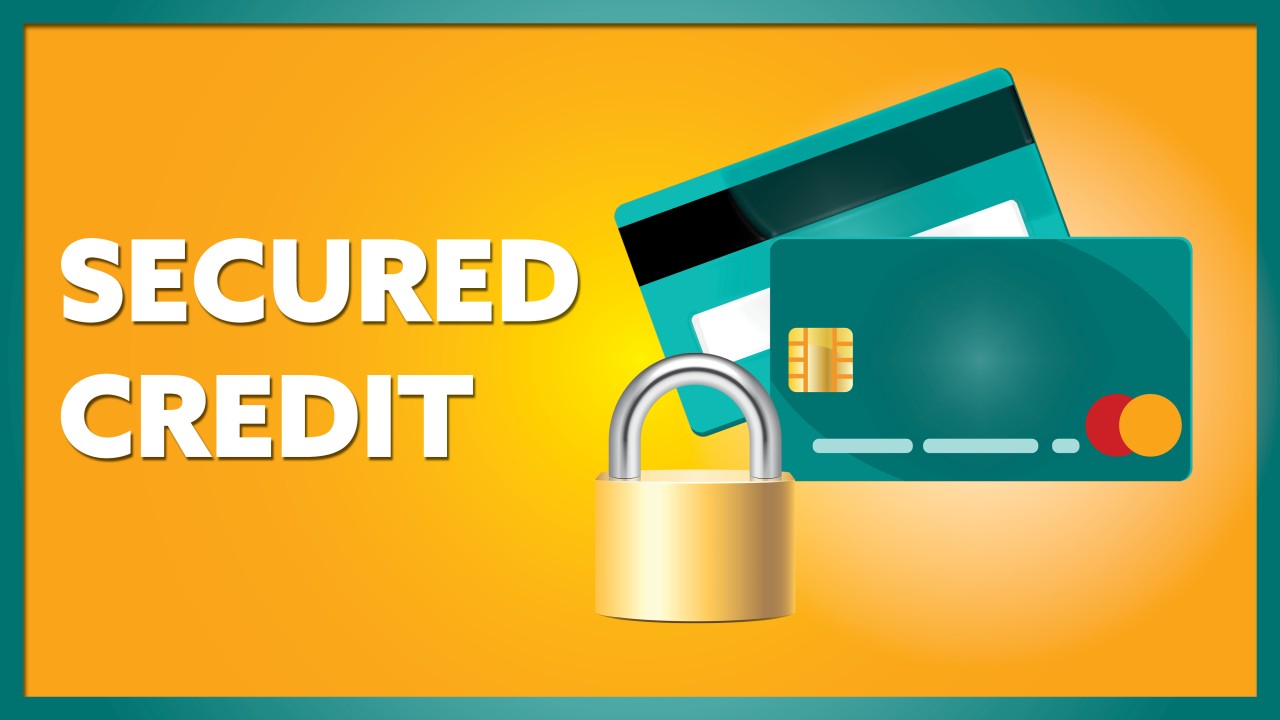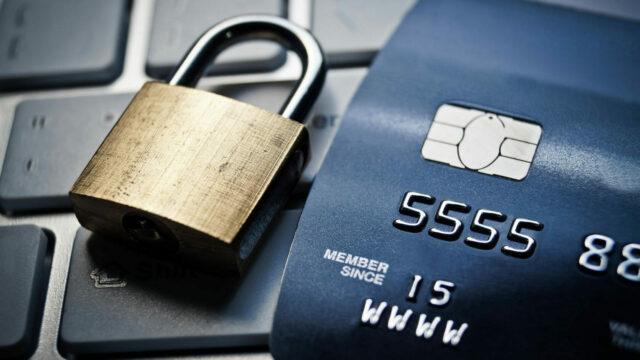What Are Secured Credit Cards?
It is a challenge getting an approval for an unsecured credit card with a poor credit score, nevertheless, one may be unable to improve their score as there would be no lender extending a line of credit. In any case credit can be earned in absence of a credit card, but it is not possible to receive a credit card until a credit score is achieved. Secured credit cards fit into this niche.
A secured credit card is a credit card for which a cash deposit is required to reduce the default risk for the lender. The deposit is usually equivalent to the credit limit which is normally capped at between 50 percent and 100 percent of the initial funding. However, in most cases, it is common to be able to use up to the exact amount of the security deposit on a secured credit card So, if your security deposit is $500, your maximum spending limit on the secured credit card will also be $500.
How do secured credit cards work?
Practically secured credit cards are like one’s debit cards. Aside from this, someone is using a cash deposit to buy goods and services as a secured revolving line of credit.
If one needs to get a secured credit card, they can apply for it, for example, through a bank, a credit union or a credit card company. The bank that you wish to apply for may check the status of your credit report when making a decision of whether to approve you or not.
There are n which are: Experian, Equifax and TransUnion There are three major credit reporting agencies. The credit card company should provide such clients accounts information to them. Standing on chances that you will be able to use the card as required, which in return positively impacts on your chances of being approved. But before you fill the form for the application, apply only to companies that assure you that they will report all the payment history to the three credit bureaus.
Secure credit cards have also been referred to as the best product in case someone has provided an appropriate collateral deposit. In cases where the credit card remains unpaid, the issuing company will dip into the deposit that was made earlier, which is usually between $50 and $2000 to $3000 and is used to settle the obligation. Although the total amount of funding will be equal to the secure card limit, the secure card limit is likely to be lower than the secure card amount.
After making the initial security deposit, the card can be used for up to the limit for purchases, whether it is in person or on the internet. A secured credit card can be utilized at any place, including gas stations, grocery stores, and other outlets, where credit cards are accepted. When the balance of any recent purchases is paid off, the card can be used again for making more purchases. If the borrower does not settle the remaining dues in full however, they will have to pay a level of interest on the balance which is not settled.
When should you get a secured credit card?
A secured credit card has been a useful resource for people with poor credit as a part of improving their credit scores, or for people who have been given these cards because they have no credit history. It is not any different wherever you belong, let’s consider a case of deploying one of the best secured credit cards in a certain situation.
You want to improve your credit: As a secured cardholder, a cardholder is required to make a refundable deposit used as collateral. In this case, only a small credit limit is hosed to the secured cardholder. In the event that you have a bad credit score or worse none, lenders will not extend lines of credit to you on account of the credit risk that you have due to the fact that you do not hold any credit history. But by putting a security deposit, a lender can mitigate the exposure to loss that would arise from the borrower defaulting on the repayments owed.
However, just as it is for every other credit card, once the credit card is utilized, it’s completely up to the discretion of the user as to how well they manage and use the credit that has been offered to them. As long as one can comfortably keep the credit utilization ratio at a low level with timely monthly payments, there is absolutely no reason as to why the credit score will not improve.
Moving from a secured credit option to an unsecured one: There is no hassle of converting from a secured credit card to a regular credit card after the requisite efforts have been put in on one’s credit score due to the secured card.
Most of the credit card providers will eventually convert their cardholders with secured credit ratings to a credit card with no collateral after 3-8 payments are made by the cardholder. On an average this could take somewhere between 12 months to about 18 months depending on the payment patterns of the cardholder and the score being built.
There is also an option to request for a new credit card without any security but still owning a secured credit card account. This isn’t very wise because in most cases, the closure of a credit card account has a negative impact as it decreases the total credit limit available which includes the closed account. It is worth noting though, that if this account is to be closed, there is a risk of losing a deposit.
Tips for using a secured credit card
Secured credit cards also function with the same principles as secured cards. And here are some suggestions to ensure that your score is in the best shape it can be:
Your balance should always be up to date: The steady history of repaying debts on time is the most imperative element that influences the outcome of one’s credit score, constituting 35% of the score. When possible, pay the total balance amount, so that you may refrain from paying interest and safeguard your credit rating within acceptable limits. Nevertheless, in case you had to miss out on making the full payment, there is no need to worry but do make sure to pay at least the minimum payment owed by the due date.
Ensure the lender relays the information to all the bureaus: In the scenario, where you are seeking to increase your score by using a secured credit card, you must ensure that the issued supplier of the credit card is reporting credit utilizations with the three major credit bureaus. Do not forget that some issuers refrain from updating the account status of the secured cards, so which is why it is prudent to apply for a secured credit card that reports to at least one of the credit bureaus.
Maintain your credit utilization rate rates to not more than thirty percent. Think of credit utilization as the percentage of the credit extended to you that you are utilizing at any given time. In general terms, keeping your credit utilization below 30 percent is the most prominent and logical practice. When you have high credit utilization that means your credit card is on the verge of being extended to the maximum and this may adversely reflect on your credit score.
Do not spend too much: When swiping that secures credit card, do it only for a few set transactions each month, this should assist avoid hitting your credit limit. With this approach, you will not only have a good credit score but also learn how to avoid living beyond your means. In case you are applying for a secured credit card do not seal any deposits that will cost you too much. If a credit card says it has a limit of $1000, it does not mean you should hit that limit as soon as you acquire the card.
| Feature | Description |
|---|---|
| Security Deposit | Required upfront, refundable upon account closure or upgrade. |
| Credit Reporting | Payments reported to credit bureaus, aiding credit improvement. |
| Credit Limit | Typically equal to the deposit amount. |
| Interest Rates | Similar to or slightly higher than unsecured credit cards. |
Benefits of Secured Credit Cards
Secured credit cards offer a reliable way to build or rebuild credit. They provide accessibility to individuals with poor or no credit history and encourage responsible financial habits.
Credit Building: Payments are reported to credit bureaus, improving your credit score.
Financial Discipline: Helps you spend responsibly within your limit.
Upgrade Potential: Many issuers allow transitioning to unsecured cards after responsible use.
| Aspect | Secured Credit Card | Unsecured Credit Card |
|---|---|---|
| Deposit Requirement | Yes | No |
| Accessibility | Available to individuals with poor or no credit | Requires good credit history |
| Credit Limit | Equal to or slightly above the deposit | Based on creditworthiness |
| Rewards | Limited or none | Often includes rewards programs |
Who Should Use Secured Credit Cards?
Secured credit cards are ideal for individuals building or rebuilding credit, young adults starting their financial journey, and immigrants without a U.S. credit history.
By using secured cards responsibly—making timely payments and keeping balances low—users can establish or improve their credit profiles.

| Factor | What to Look For | Example |
|---|---|---|
| Minimum Deposit | Low minimum deposit | $200 deposit minimum |
| Annual Fees | Zero or low fees | $0-$39 annual fee |
| Credit Reporting | Reports to all major credit bureaus | Ensures credit improvement |
| Transition Options | Easy upgrade to unsecured cards | Deposit refunded after upgrade |
Secured credit cards are a valuable financial tool for individuals seeking to build or rebuild credit. By understanding their features, selecting the right card, and using it responsibly, you can pave the way to a better financial future.
FAQ
How is a secured credit card different from a prepaid card?
A secured credit card builds credit by reporting to credit bureaus, while a prepaid card does not.
Can I get my deposit back?
Yes, your deposit is refundable when you close the account in good standing or transition to an unsecured card.
Do secured credit cards affect my credit score?
Yes, responsible use can positively impact your credit score over time.







